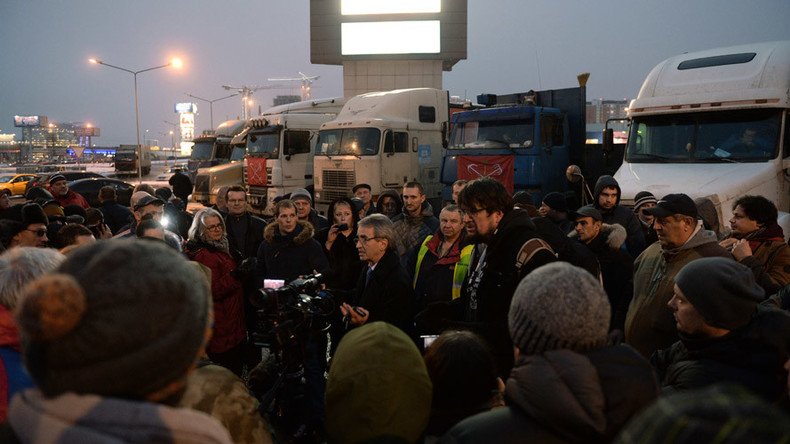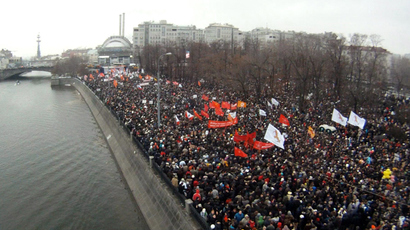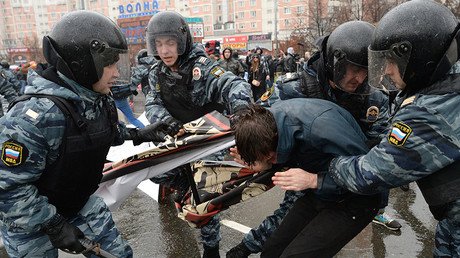Senators oppose amendments tightening Russian law on rallies

Russian upper house MPs have proposed reworking a bill that, if passed, would list any events in which lawmakers meet their electorate as public rallies, claiming that the move would damage democracy and increase red tape.
The senators reacted to the motion drafted by lower house MP Irina Belykh (United Russia) that would require meetings between lawmakers and voters to comply with the same rules as public rallies.
Currently, the key difference between the two formats is that an elected lawmaker must coordinate a meeting with voters with the local municipal authorities at least seven days ahead of the planned date. Organizers of a public rally, on the other hand, would have to coordinate it at least 15 days ahead.
The proposal caused protests in both chambers of the Russian parliament. Representatives of lower house opposition caucuses said in comments with Kommersant daily that they planned to vote against the bill.
“Usually we are forced to hold a meeting between voters and lawmakers when authorities obstruct a regular rally in a public place, offering us some unpopulated ravine as an alternative venue,” said the deputy chairman of the Communist Party Central Committee, Vladimir Kashin.
“The highest degree of security is provided in concentration camps with their top levels of control and surveillance,” said Oleg Shein of the center-left Fair Russia party. “Lawmakers and people must be able to meet without any approval of some city head,” he added.
Yaroslav Nilov of the nationalist party LDPR said that its leader, Vladimir Zhirinovsky, was so popular that any time he appeared in a public place an improvised meeting starts as passers-by start addressing the politician with questions.
Upper house MPs also called upon their colleagues to rework the draft, saying it contradicted the spirit of other Russian laws.
“The bill does not take into consideration the legal status of a member of parliament and his or her relations with voters as well as the institution of a public event. It is impossible to understand these as equal things,” reads the senators’ letter.
It is expected that the new bill will be assessed by the State Duma Legislative Committee on March 23. If the outcome is positive, the State Duma will then hold hearings into the document in the first reading.
The existing Russian law on rallies was introduced in June 2012 – a short time after a large-scale protest rally in Moscow erupted in riots and clashes with police, leading to arrests and criminal prosecutions. It greatly increased the fines for violating the strict rally rules and also toughened the rules of licensing any public events. The steps were met with harsh criticism from human rights activists – both from NGOs and official bodies – and the authorities subsequently introduced several corrections to the law.
In the latest developments, the government ordered the Justice Ministry to change the part of the law that ordered prison sentences for repeated violations of public rally rules. It came after the Supreme Court vacated the only sentence passed under the law, with several officials proposing to repeal the act altogether.














